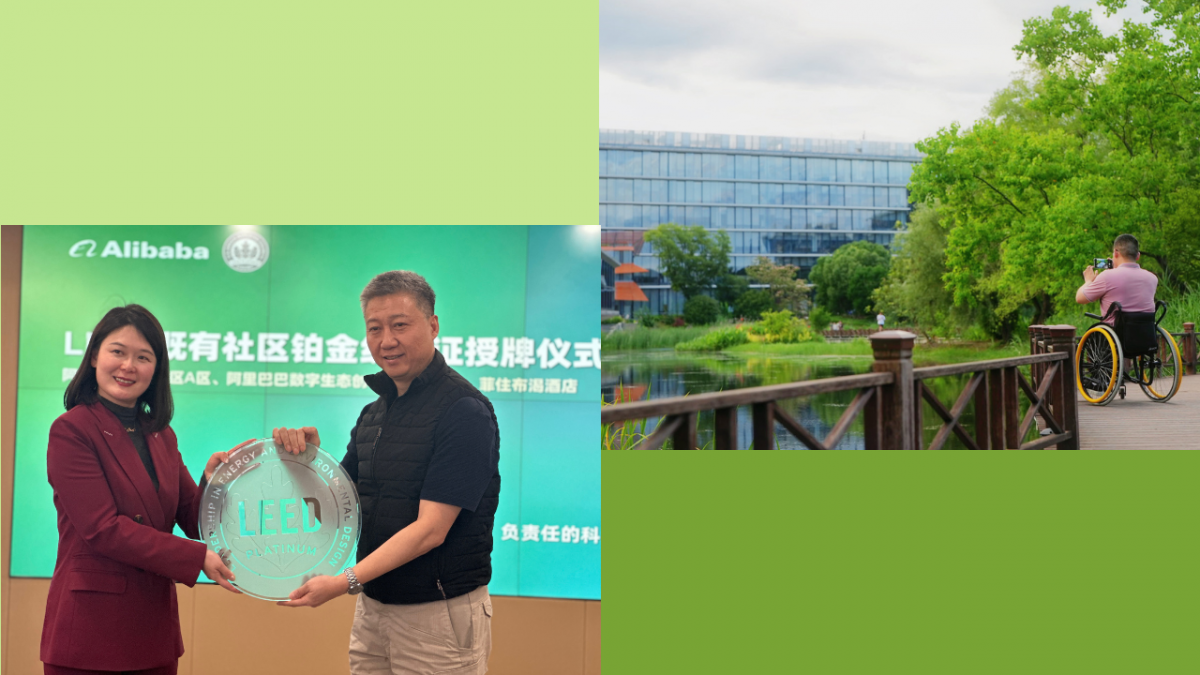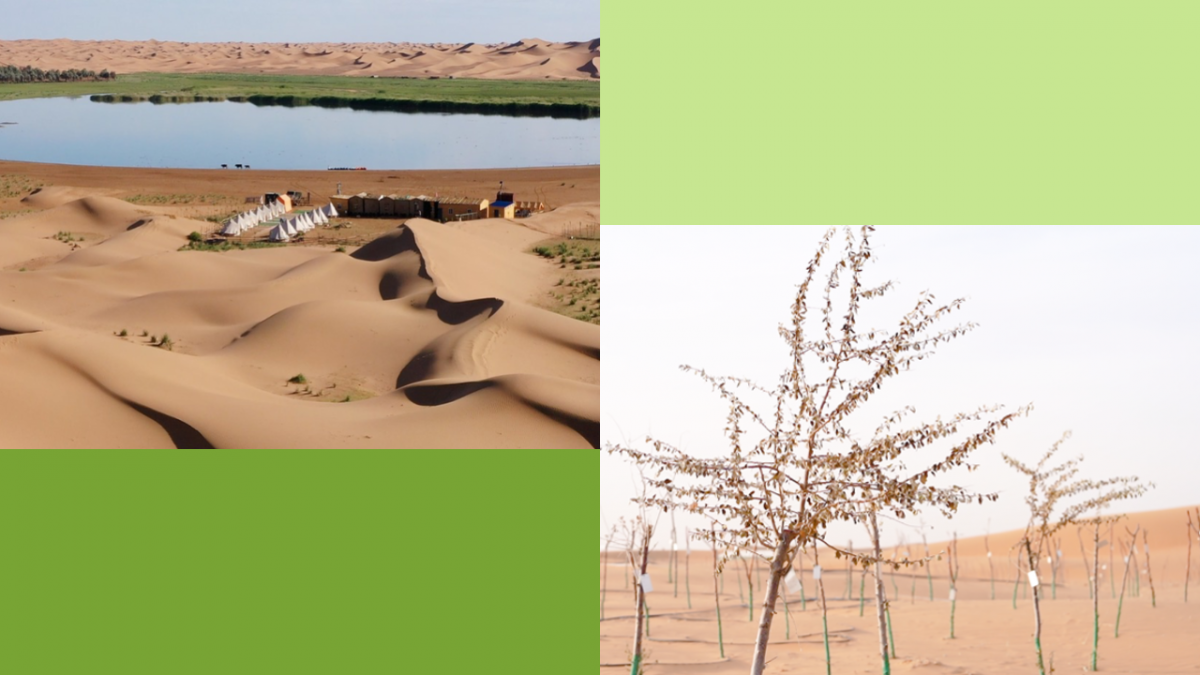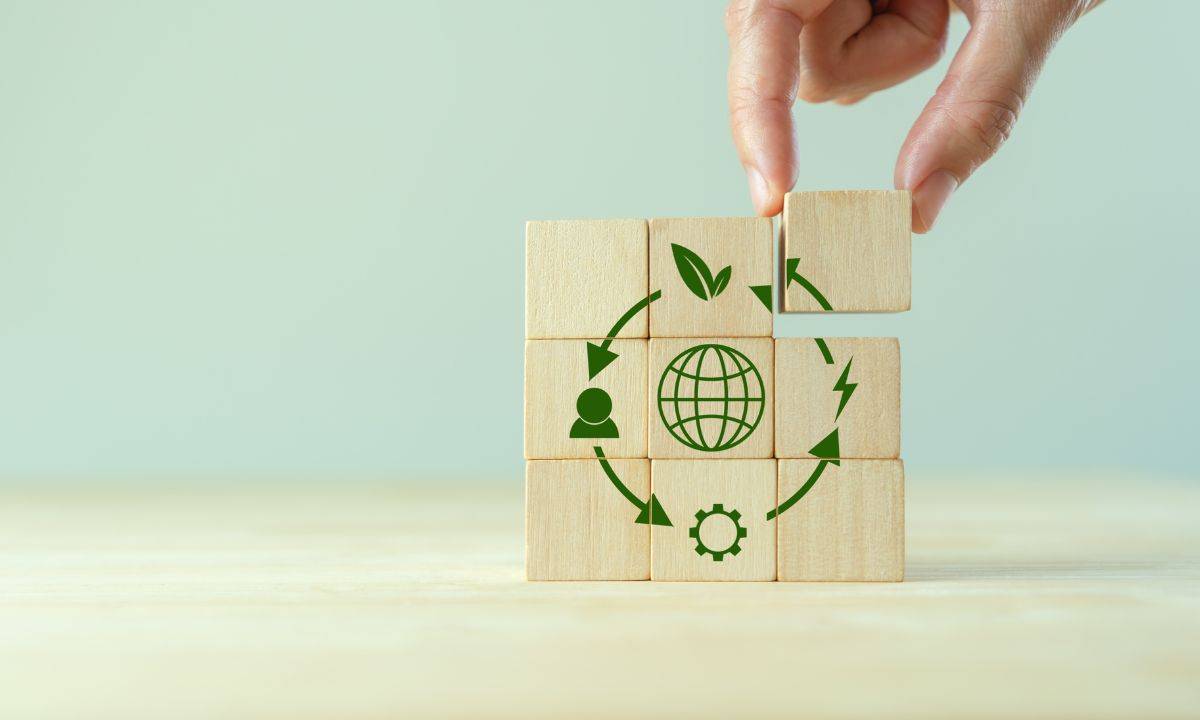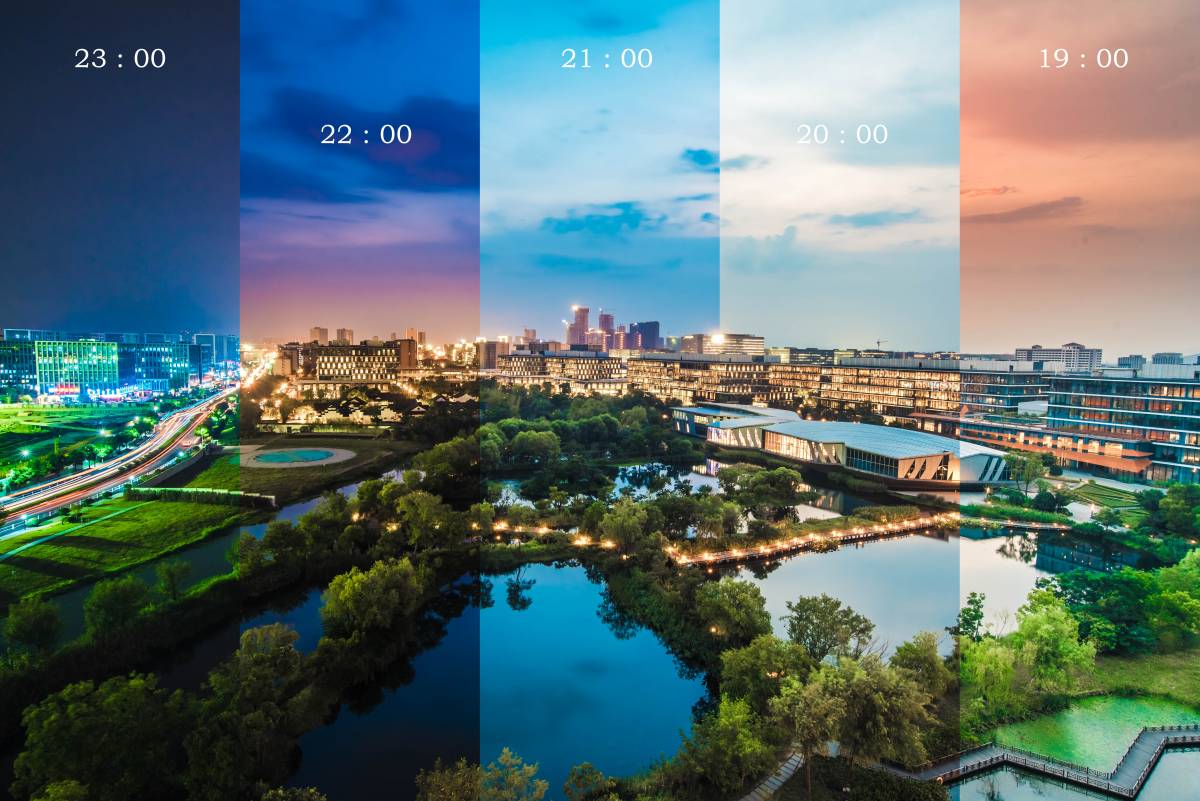
Photo credit: Getty Images
Alibaba Group is on track to hit carbon neutrality in its own operations by 2030 and will slash carbon emissions across its wider digital ecosystem by 2035.
This Earth Day, we take stock of the progress made towards this goal by examining sustainability efforts now underway across Alibaba’s operations in China.
From the deserts of Inner Mongolia to university campuses in Zhejiang, the platform company is supporting efforts among employees, merchants and consumers to live more sustainably.
Read on to explore Alibaba’s recent green achievements, and check out Alizila’s sustainability hub to read about activities happening year-round

Crowning China’s Largest Platinum LEED Office Campus
Alibaba’s Xixi Park campus has become the first place in Hangzhou and the largest office community in China to achieve LEED International Platinum certification.
LEED is an internationally recognized third-party certification system that gauges the sustainability of building design and construction. It has been implemented in 185 countries and regions around the world.
“I am very happy that the LEED standard can be used as part of Alibaba’s carbon neutral roadmap to participate in China’s leading technology Internet companies in the green cause,” said Wang Jing, Vice President of LEED North Asia, in a statement.
In fiscal year 2022, the Xixi campus saved some 2,866 tons of carbon dioxide by deploying a host of innovative energy-saving measures.
Employees can self-adjust their workstations’ lighting brightness and air-conditioning temperature with a single click and turn on and off office equipment by themselves.
At the nearby Alibaba Cloud campus, similar efforts are underway.
Around 70% of the water used for irrigation across the campus is recycled rainwater, and many rooftops are also covered in solar panels, one of several sources of the green energy that accounts for 40% of all electricity used on the cloud campus.
Building an Appetite for Recycling
In Zhejiang, a province to the south of Shanghai, Alibaba food delivery platform Ele.me is working with 20 universities to slash lunchbox plastic waste and streamline recycling processes.
In November 2023, provincial authorities identified Ele.me as a potential partner for sustainability initiatives on school campuses. Since then, the platform has been busy developing a recycling system to identify different materials used in takeaway lunchboxes.
More than 27,000 students participated in a trial earlier this year, saving roughly two tons worth of takeaway lunchboxes from the dump every day and allowing around 70% of the waste to be recycled.
“In the future, we will cooperate with more ecological partners and institutions to continue green exploration under the dual carbon goals,” said Xiao Shuixian, Senior Vice President, in a statement.
The results mirror another project conducted by Ele.me last year, when the platform sent users an in-app suggestion to decline cutlery with their orders, pushing up the share of utensil-free food deliveries by 648% versus a control group.

Nurturing a Desert Oasis
In the midst of China’s fourth-largest desert, e-commerce marketplace Taobao is fueling one entrepreneur’s efforts to push back the sands and grow a forest.
Tengri Desert, located in the Inner Mongolia Autonomous Region, has been growing for decades, notching up to 10 meters expansion annually in some areas.
In 2021, young businesswoman Tangtang reclaimed an abandoned post office near the desert and gave it a virtual second life as a Taobao shop selling postcards to netizens and planting trees on their behalf.
More than 10,000 trees have been planted in the area since then, with some dedicated by users to deceased pets, in commemoration of important occasions or as gifts to friends.
Their roots will help defend the land against desertification, a process by which fragile ecosystems in arid areas are ravaged by wind and drought. Some 135 million people around the world are at risk of displacement due to the threat of expanding deserts, according to the United Nations.




